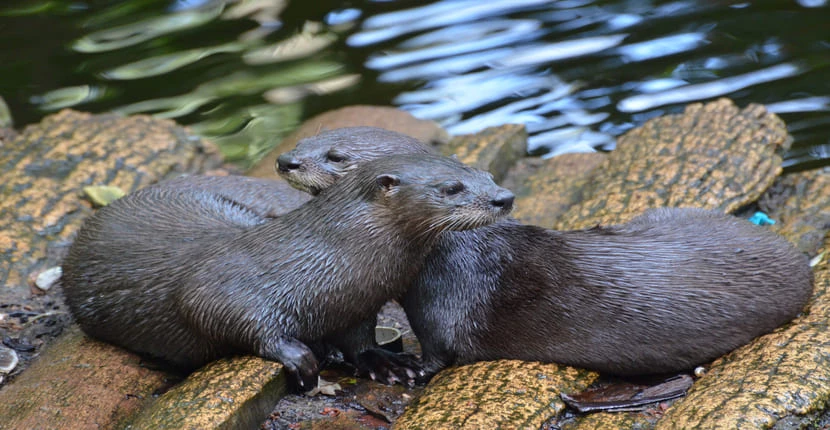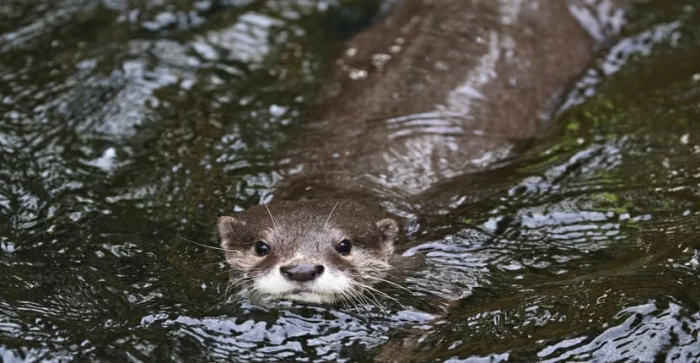
Otter Survey in Bury St Edmunds
Request a free quote for your Otter assessment todayAt Invasive Weed, we specialise in otter surveys to support planning applications in Bury St Edmunds, riverbank developments, and infrastructure projects while ensuring compliance with UK wildlife protection laws.
Otters are a protected species in the UK, and their habitats, including rivers, lakes, and wetlands, require careful assessment before any development can proceed in Bury St Edmunds. If your project involves waterways, bridges, flood defence works, or riverbank modifications, an otter survey may be required to assess potential impacts.
Our team of licensed ecologists conducts preliminary habitat assessments, presence/absence surveys in Bury St Edmunds, activity & population density surveys, and mitigation planning to ensure legal compliance and ecological protection.
For an otter survey in Bury St Edmunds and across the UK, contact us today for a consultation.
What Is the Otter Survey Process in Bury St Edmunds?
The otter survey process begins with an initial site walkover in Bury St Edmunds, where ecologists inspect the site’s waterways, floodplains, and wetland areas to identify potential otter habitats. If habitat suitability is confirmed, field surveys & monitoring in Bury St Edmundsare conducted to record evidence such as spraints (droppings), footprints, and holts (dens).
During this phase, data is collected and analysed to determine population size, activity levels, and habitat quality. The final step is producing a comprehensive report with recommendations, detailing the findings, legal implications, and necessary mitigation measures to support planning applications and conservation efforts.
What Types of Otter Surveys Are Available in Bury St Edmunds?
Otter surveys include habitat assessments in Bury St Edmunds, presence detection, population analysis, and mitigation planning.
These surveys in Bury St Edmunds also include:
Preliminary habitat assessment in Bury St Edmunds – Walkover survey to identify suitable habitat conditions and determine if further presence/absence surveys are needed.
Presence/absence survey in Bury St Edmunds – Searches for signs of otter activity, including spraints, footprints, holts, and feeding remains along riverbanks and wetlands.
Activity & population density survey in Bury St Edmunds – Estimates otter numbers and movement patterns across the site for mitigation and conservation planning.
Mitigation & conservation strategies in Bury St Edmunds – Develops measures such as habitat restoration, wildlife corridors, and protective fencing to comply with legal protections and conservation goals.

How Much Does an Otter Survey Cost in Bury St Edmunds?
Otter survey costs range from £400 to £6,000+ in Bury St Edmunds, depending on survey type, site complexity, and mitigation requirements.
A preliminary habitat assessment in Bury St Edmunds, which evaluates the site for suitable otter habitats, typically costs between £400 and £900. If further investigation is required, a presence/absence survey in Bury St Edmunds, which looks for signs of otters such as spraints (droppings), footprints, feeding remains, and holts, can range from £1,000 to £2,500 in Bury St Edmunds, depending on the size of the site and survey effort required.
For projects where otters are confirmed on-site, an activity & population density survey in Bury St Edmunds may be needed to estimate their numbers and movement patterns, with costs ranging between £2,500 and £5,000.
More detailed mitigation & conservation strategies in Bury St Edmunds, including habitat restoration, wildlife corridors, and protective fencing, can range from £3,000 to £6,000, particularly if licensed mitigation measures are required.
Additional expenses may include licensing fees (£200–£500), habitat enhancement in Bury St Edmunds (such as vegetation restoration), and follow-up monitoring (£500–£1,500 per visit).
Contact Invasive Weed in Bury St Edmunds to get customised pricing for otter survey projects in targeted biodiversity.
Is a Permit Required for an Otter Survey in Bury St Edmunds?
An otter survey inspection should evaluate whether a development project has the potential to disturb or impact otter populations, necessitating the issuance of a Mitigation License from Natural England in Bury St Edmunds or the relevant conservation authority.
Under the Wildlife and Countryside Act 1981 in Bury St Edmunds, it is illegal to capture, injure, or disturb otters; damage or destroy their holts (dens) or resting places; or obstruct access to their habitats.
Additionally, any construction, excavation, or land clearance affecting otter habitats must have a mitigation plan in place to ensure compliance. If otters are found on-site, an Otter Mitigation License in Bury St Edmunds may be necessary before development can proceed.
We assist in obtaining permits, conducting mitigation planning, and ensuring full legal compliance in Bury St Edmunds.
How Long Does an Otter Survey Take in Bury St Edmunds?
Otter surveys take from one week to several months in Bury St Edmunds, depending on survey type, seasonality, and project scope.
A preliminary habitat assessment in Bury St Edmunds can typically be completed within one to two weeks, while a presence/absence survey may require multiple site visits over several weeks. Otter surveys are best conducted in spring and autumn in Bury St Edmunds, when water levels are stable and otter activity signs are most visible.
If an activity & population density survey in Bury St Edmundsor mitigation plan is required, the process may extend over several months in Bury St Edmunds, particularly if habitat restoration or wildlife corridor creation is needed.
What Are the Environmental Considerations in an Otter Survey in Bury St Edmunds?
Otter surveys approach includes mitigation strategies in Bury St Edmunds such as habitat restoration, the creation of wildlife corridors, and protective fencing to maintain connectivity between otter populations. We also ensure compliance with conservation laws in Bury St Edmunds, helping developers integrate biodiversity protection measures into their projects.
By implementing environmentally responsible strategies, we support both wildlife conservation and sustainable development.
Contact Invasive Weed in Bury St Edmunds to get detailed information on the otter surveys in targeted biodiversity.
We cover Bury St Edmunds (Suffolk)
